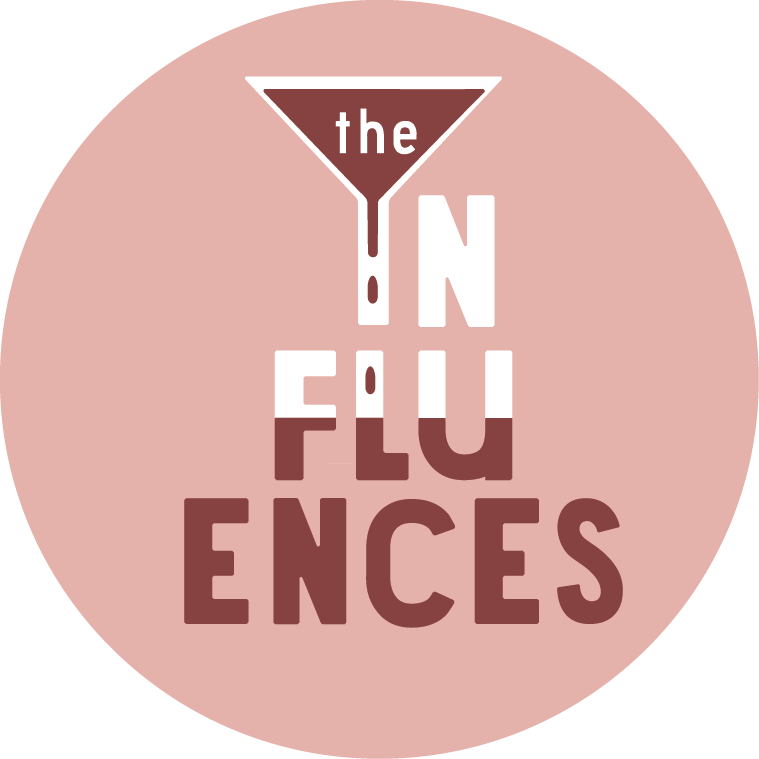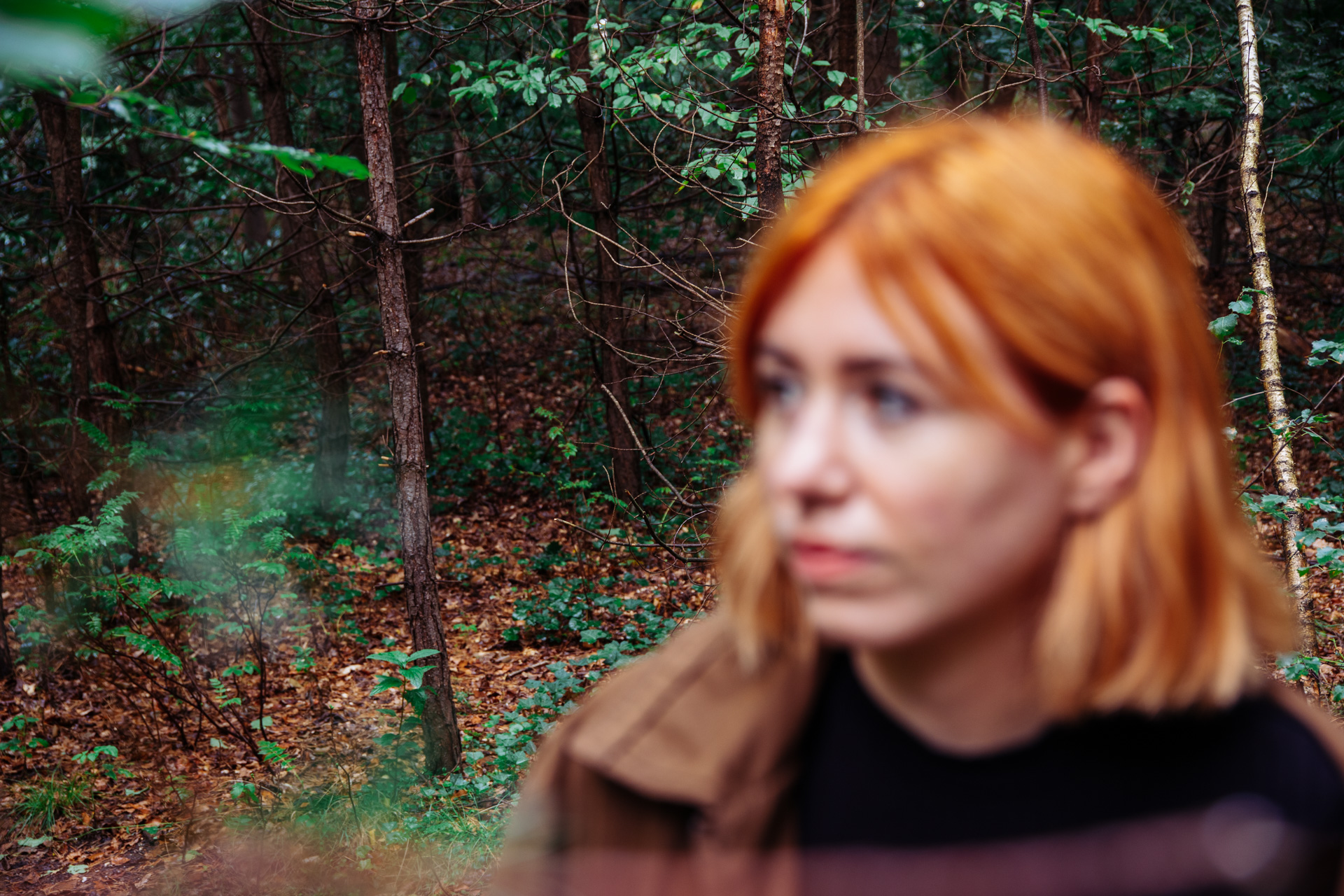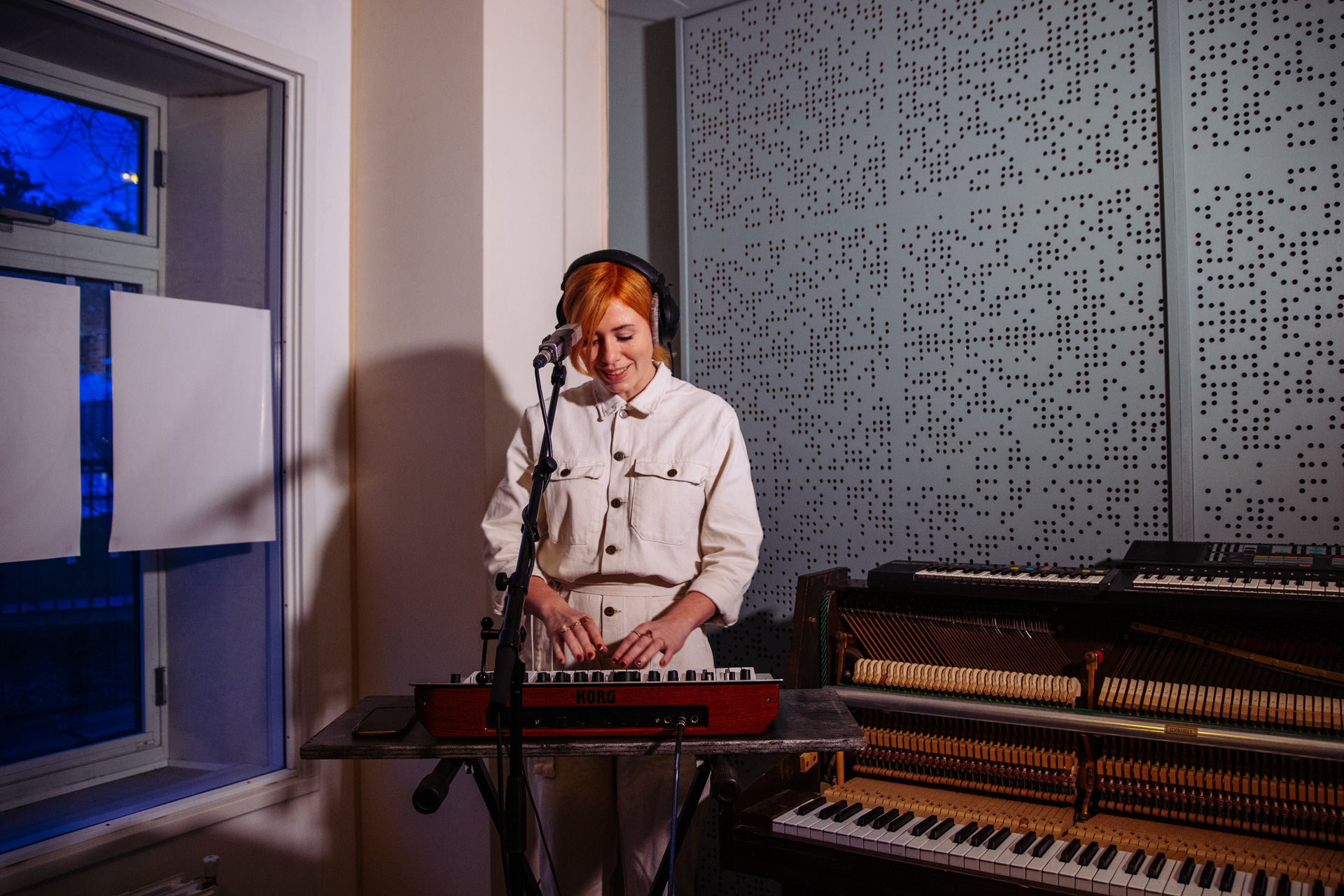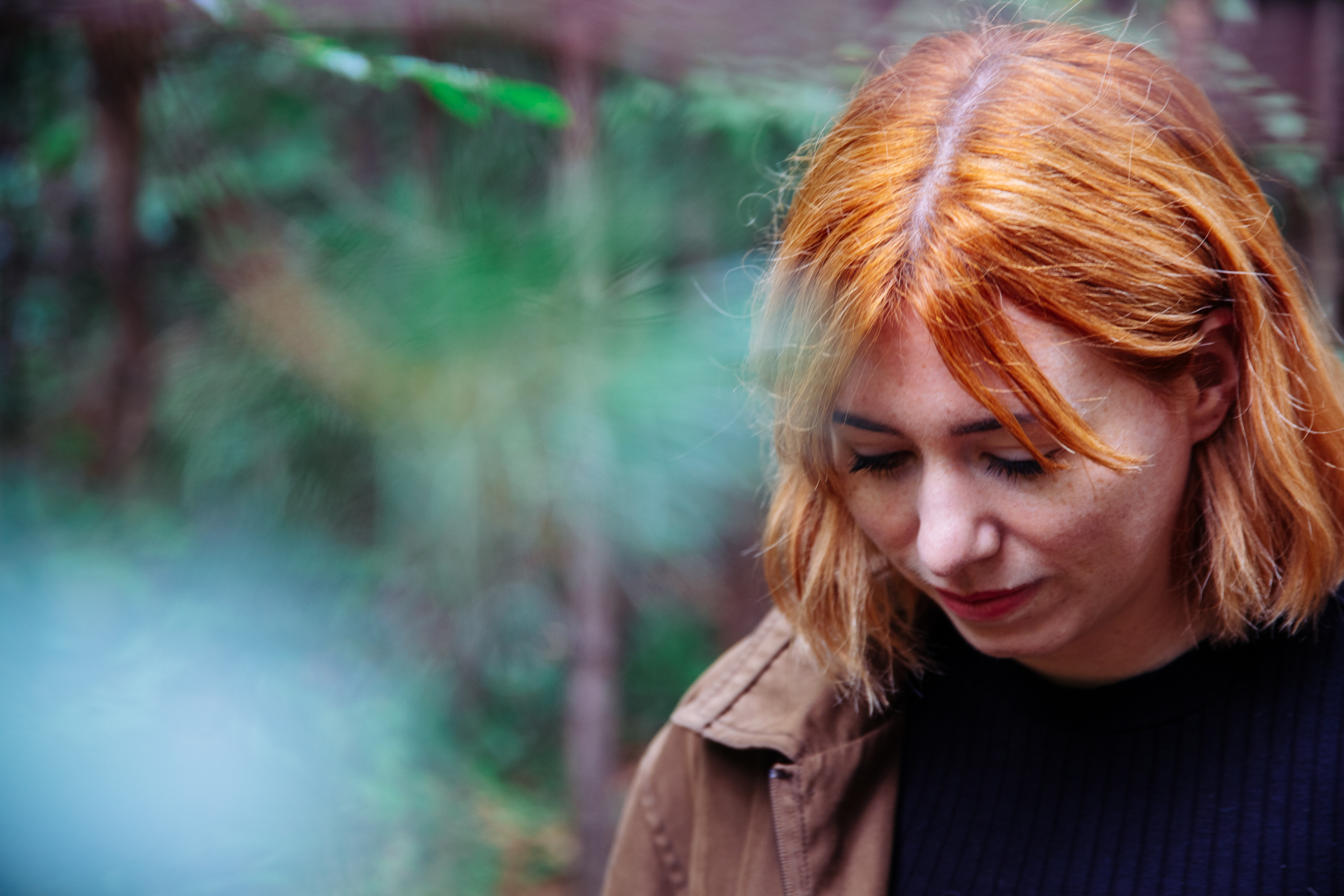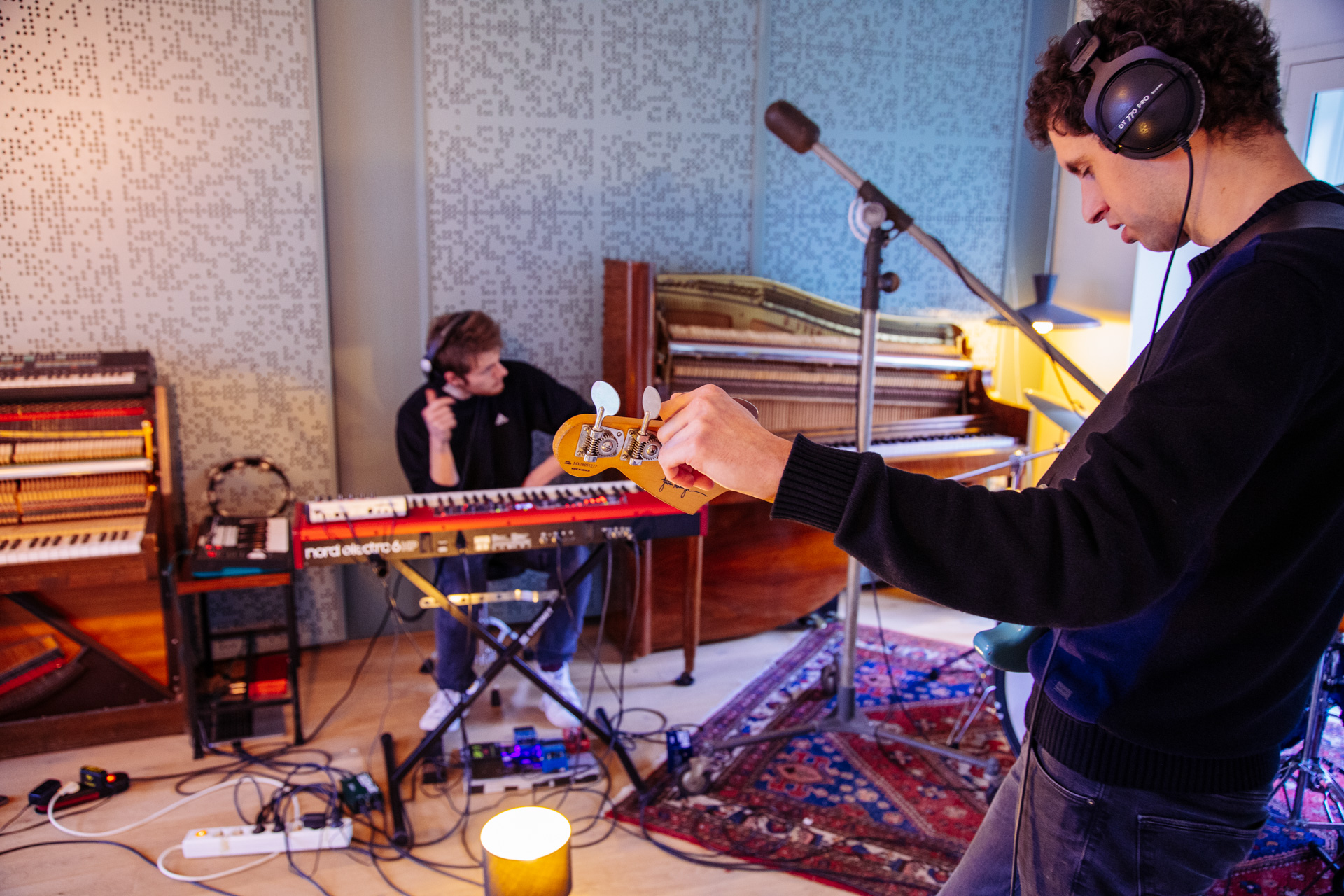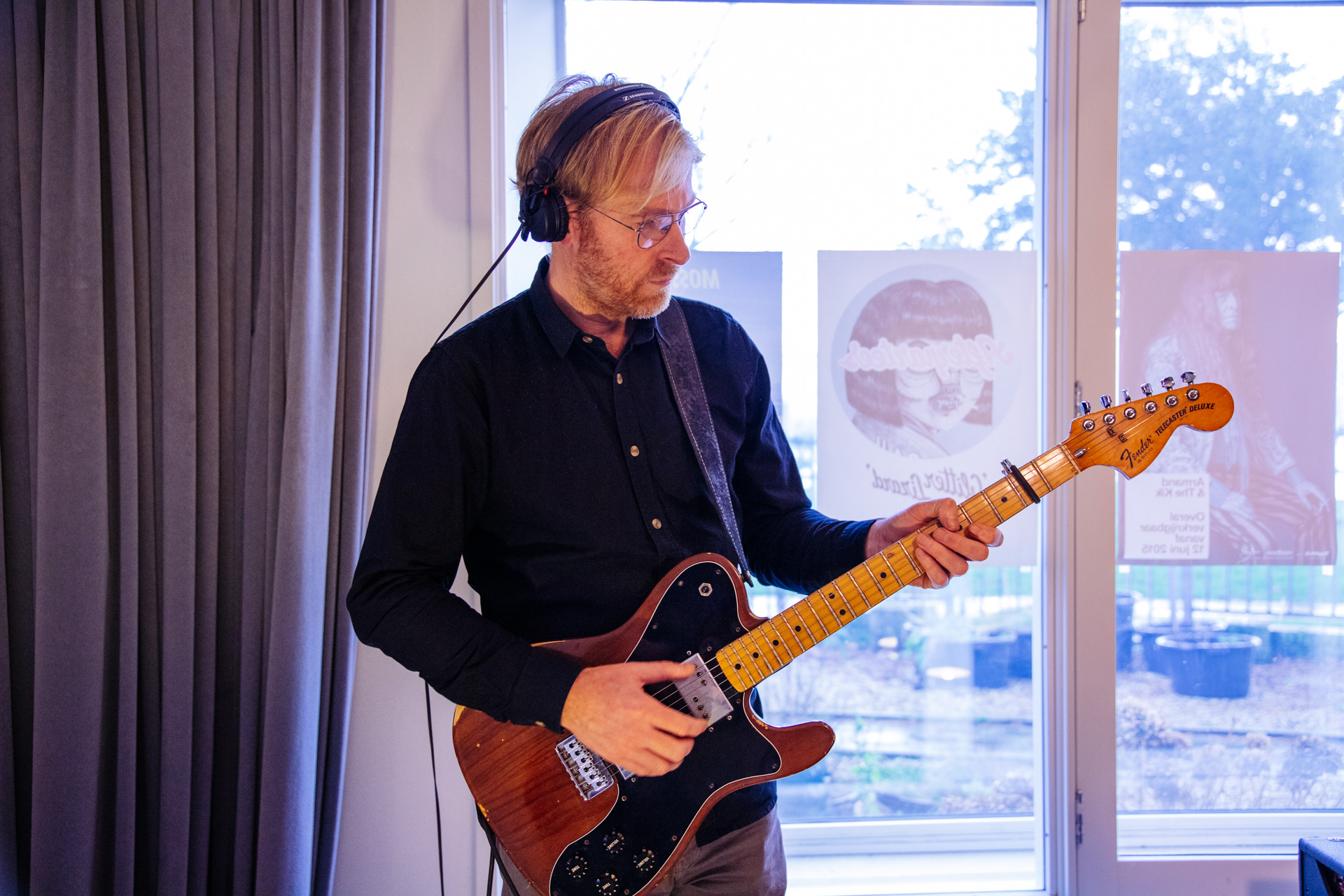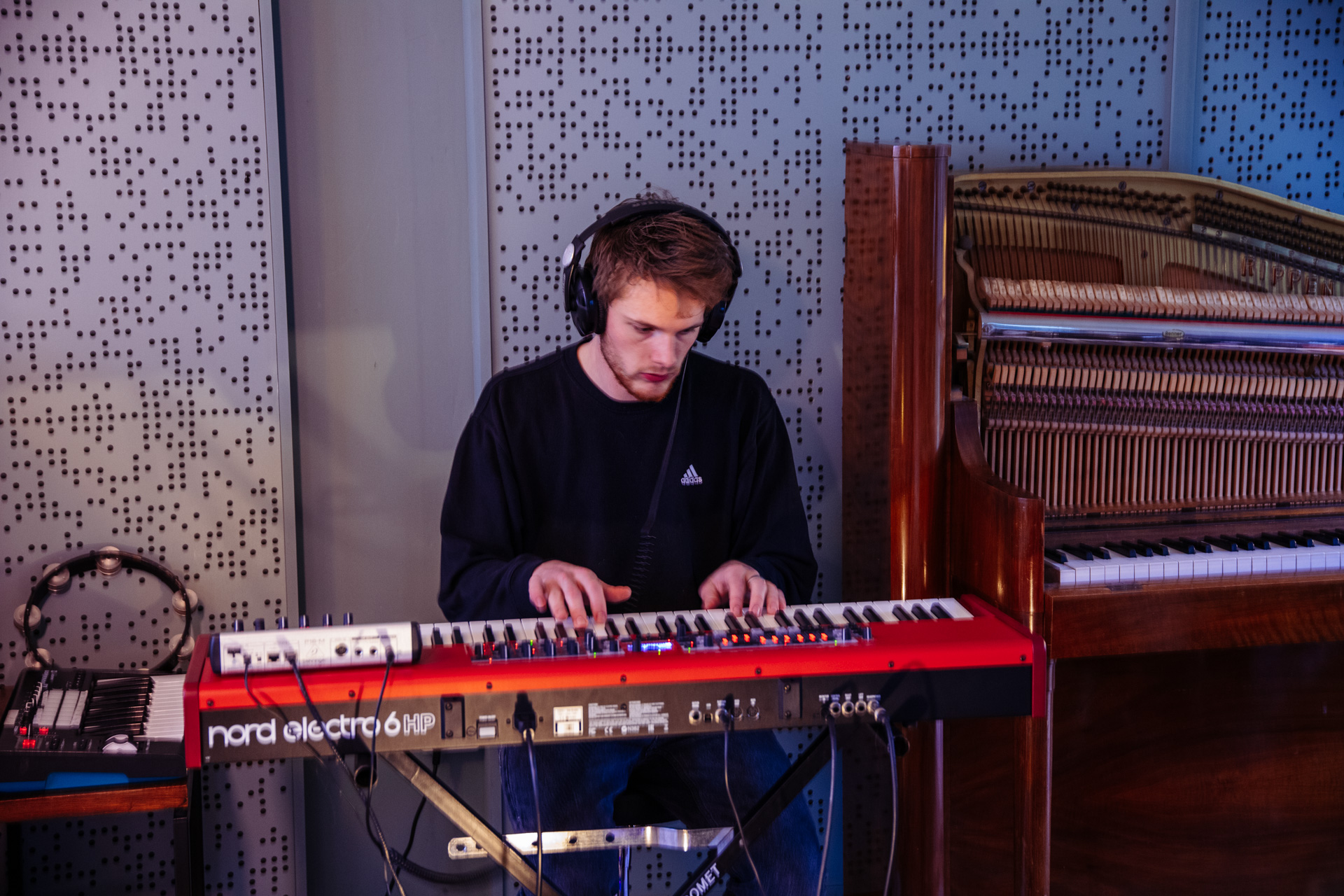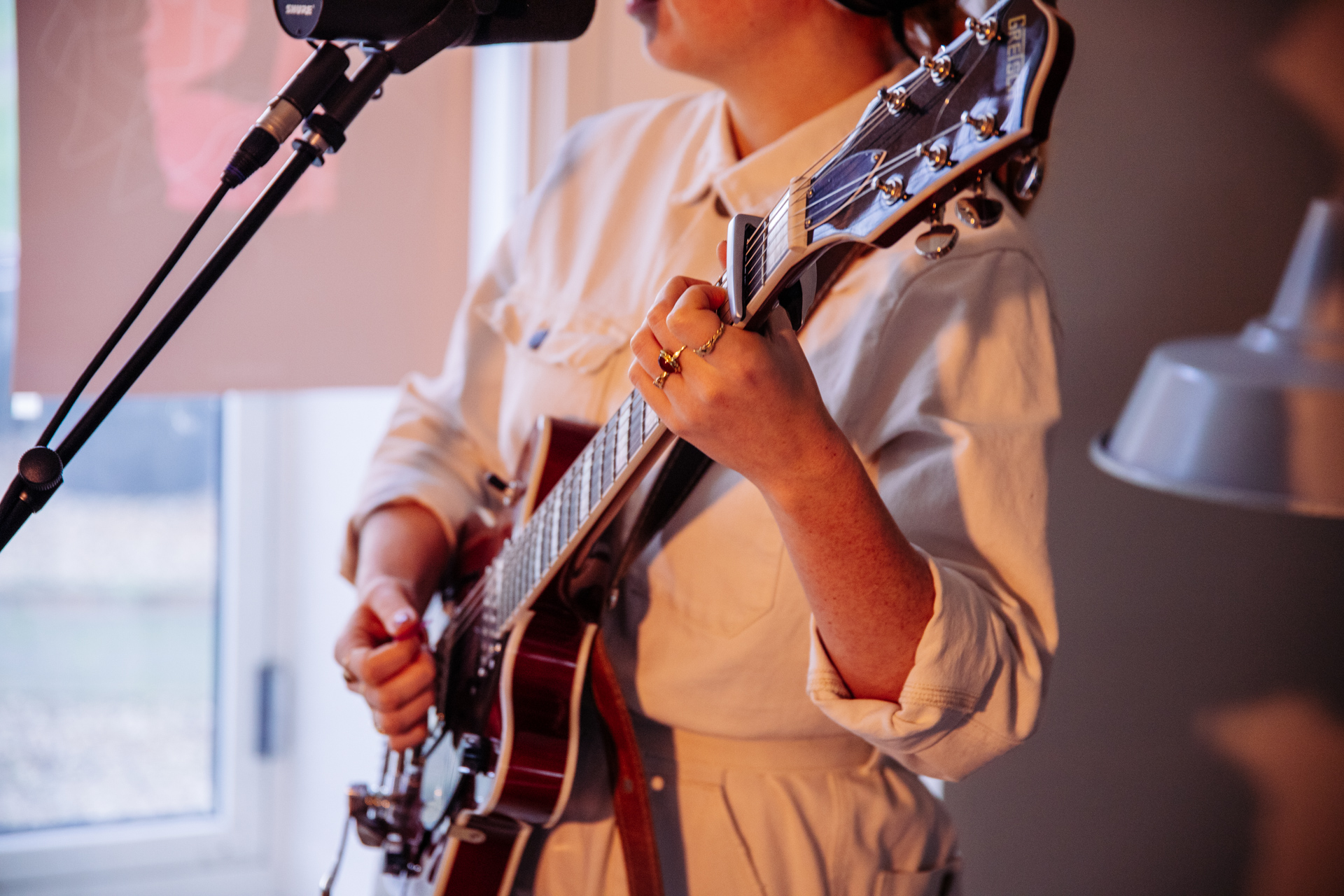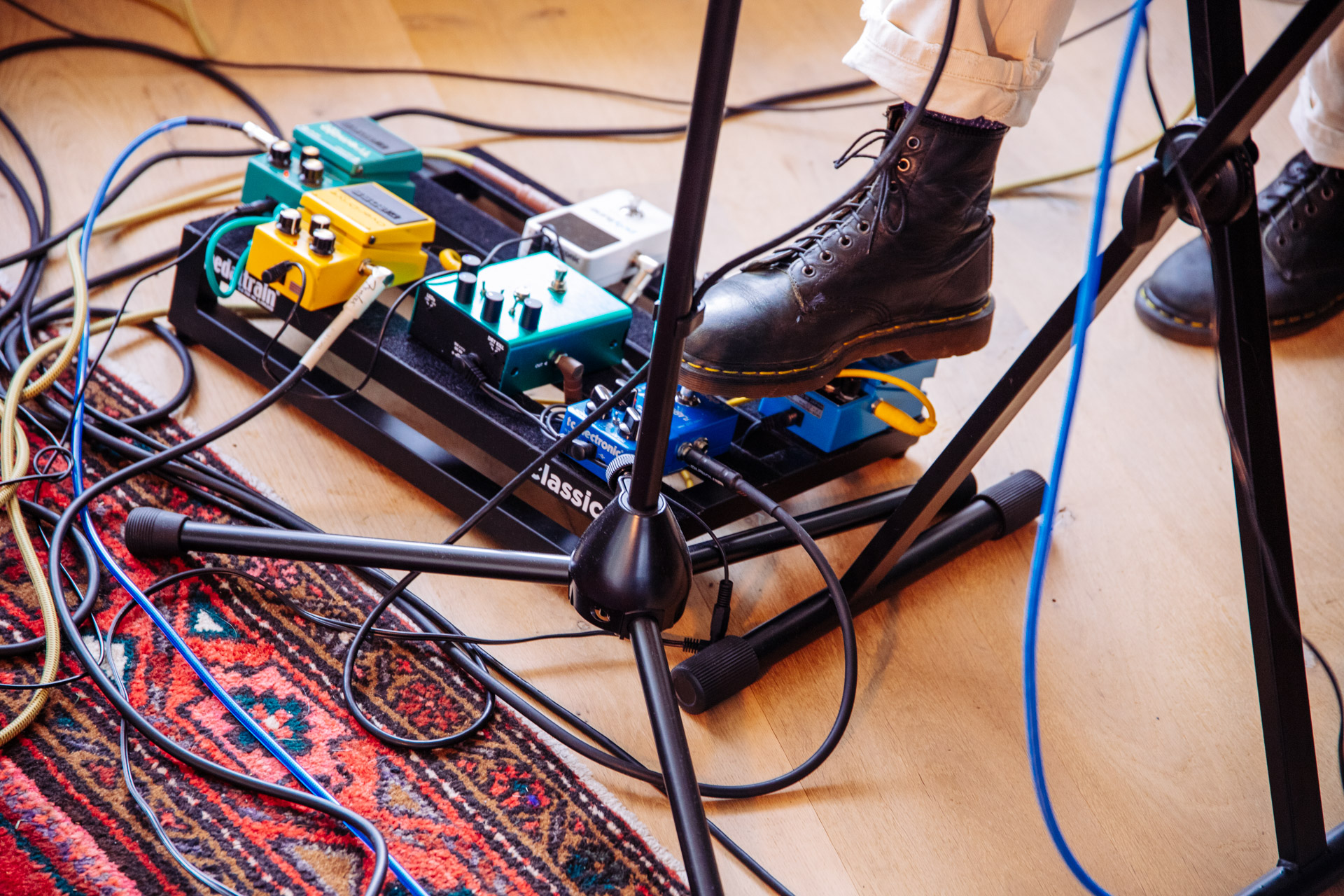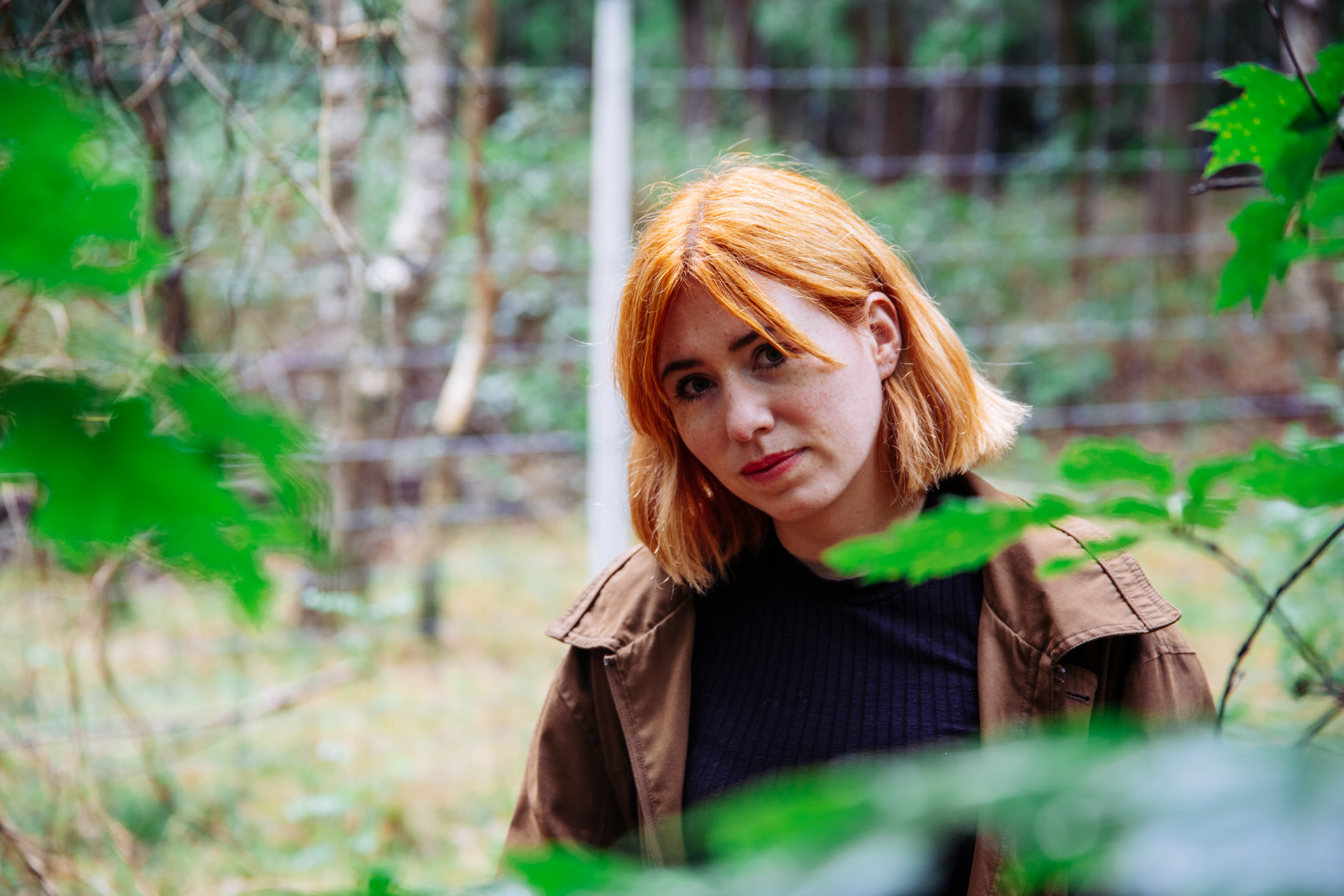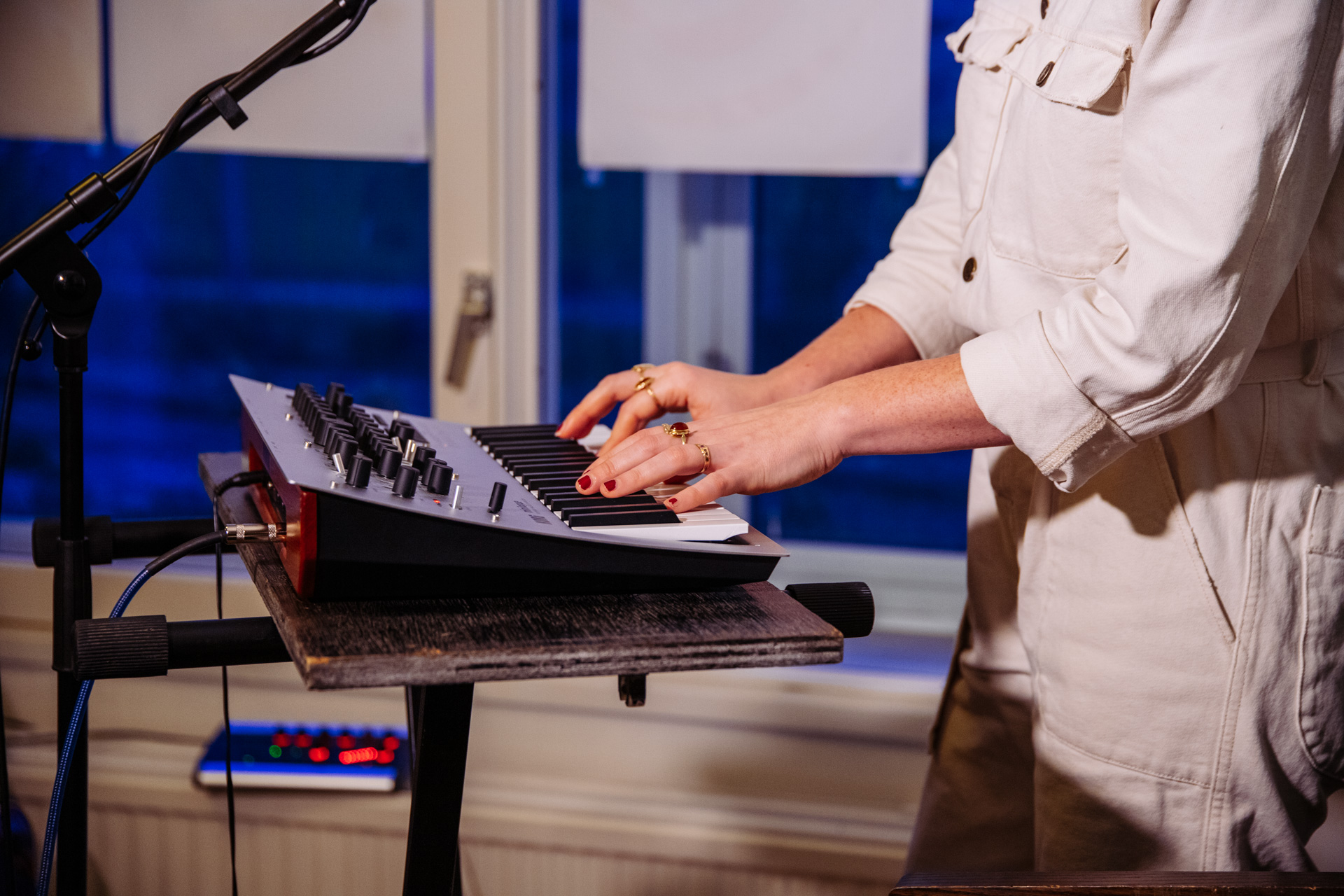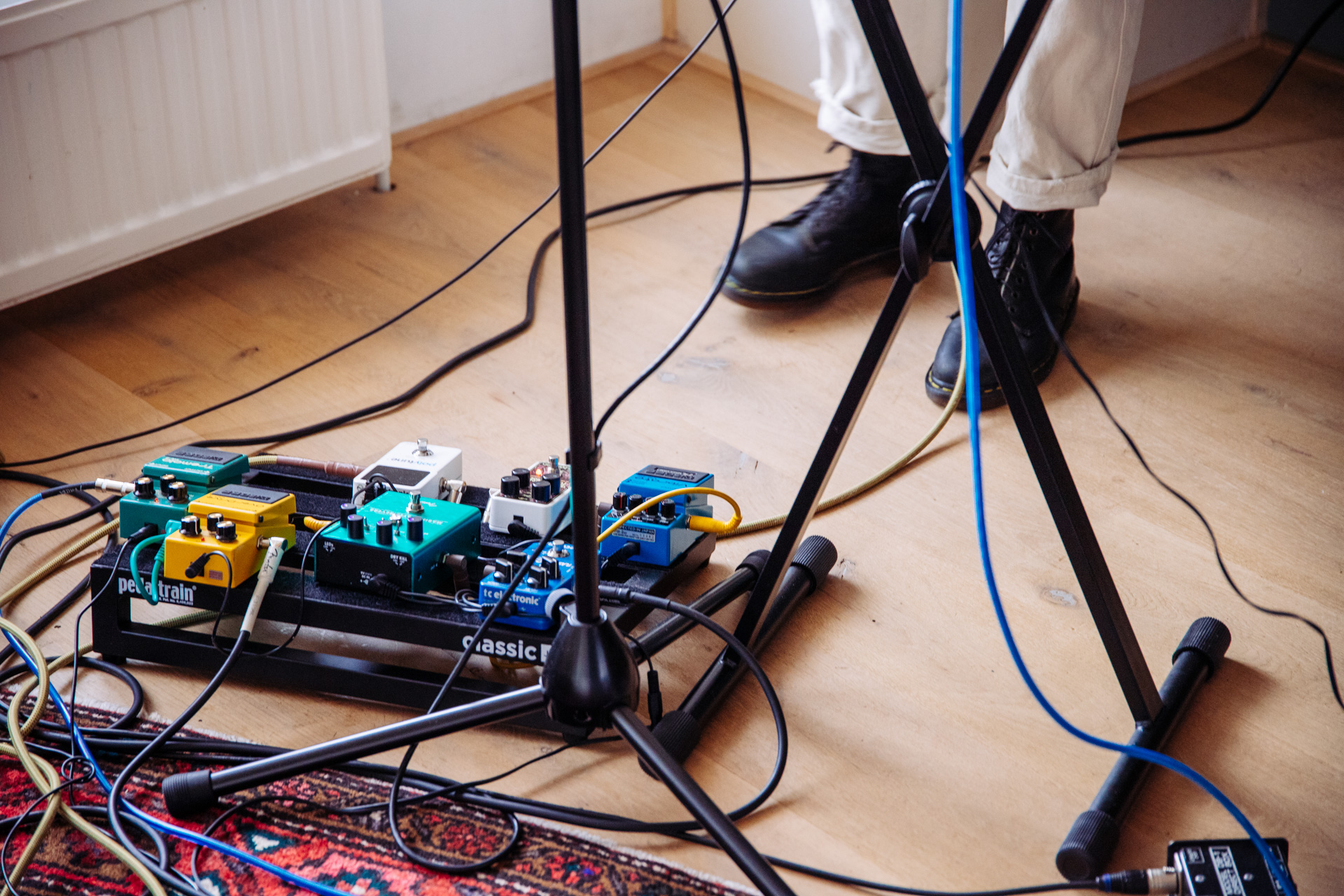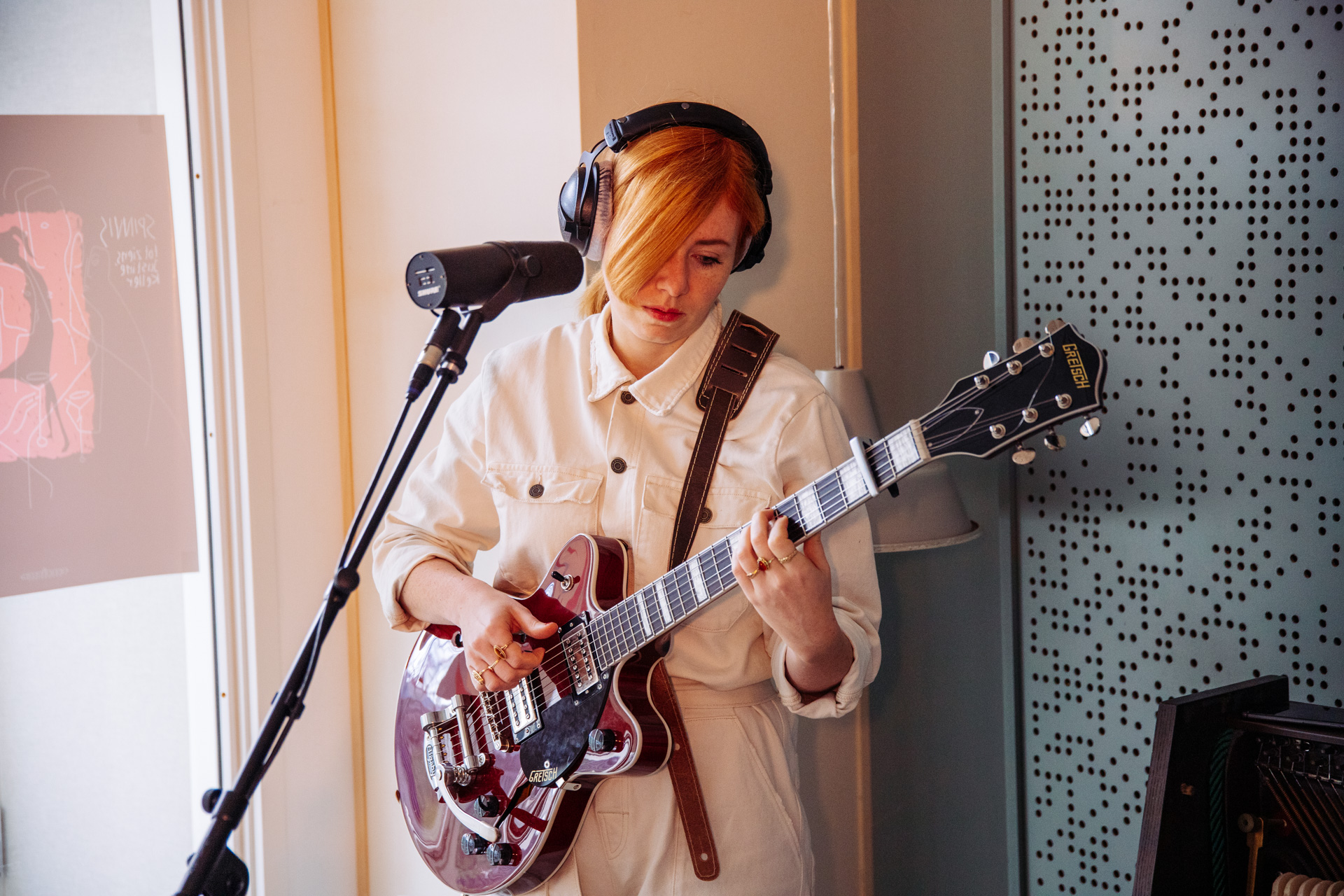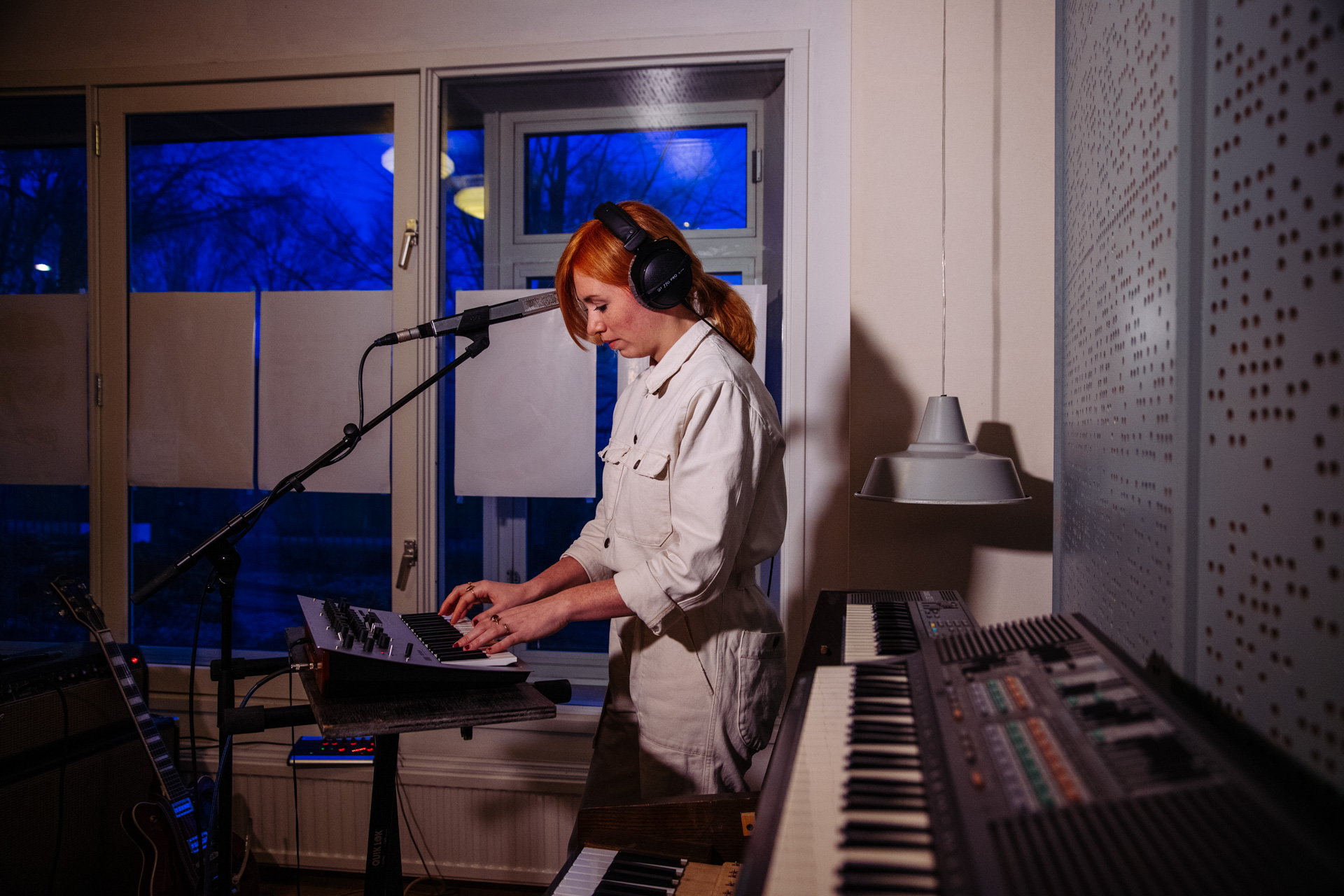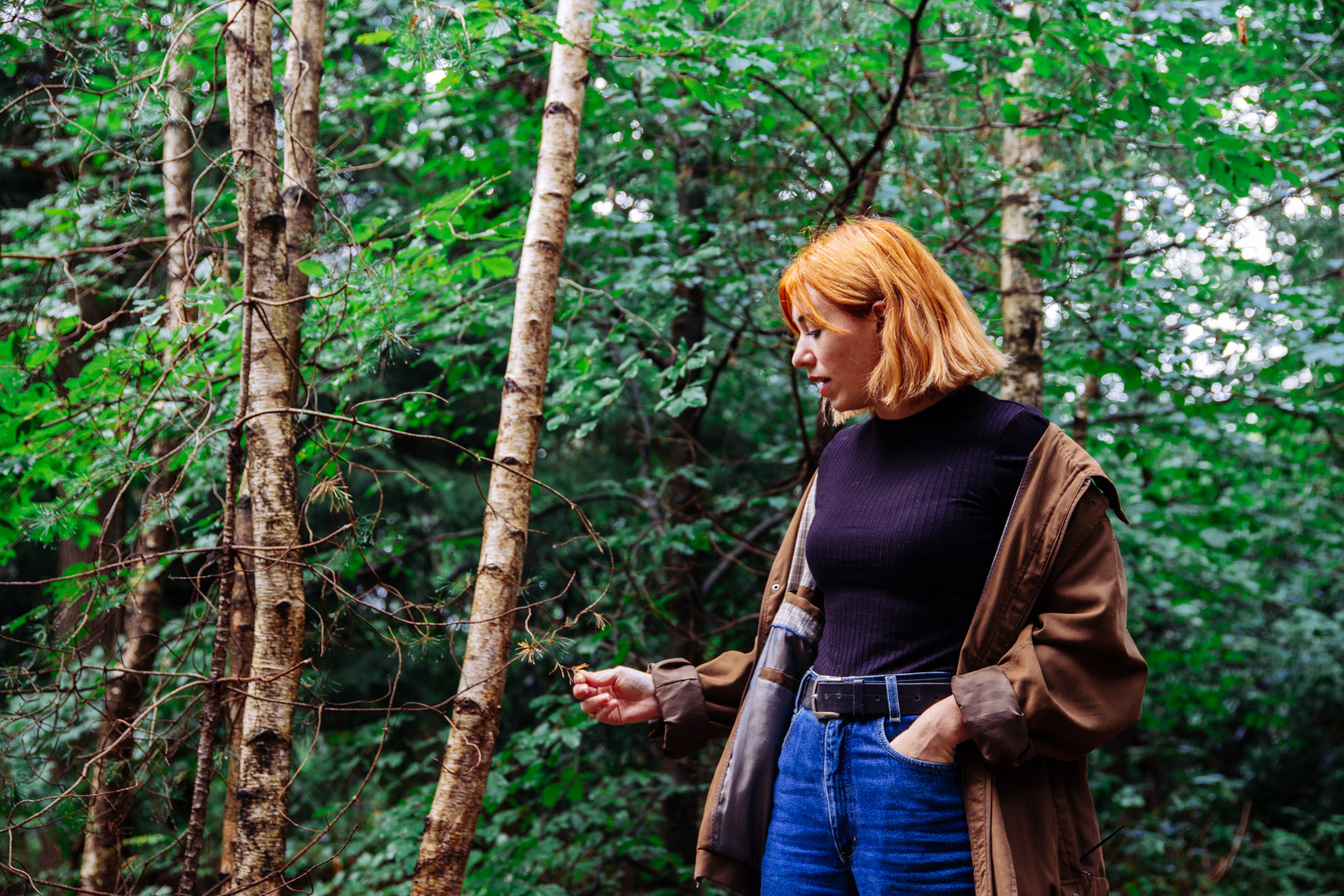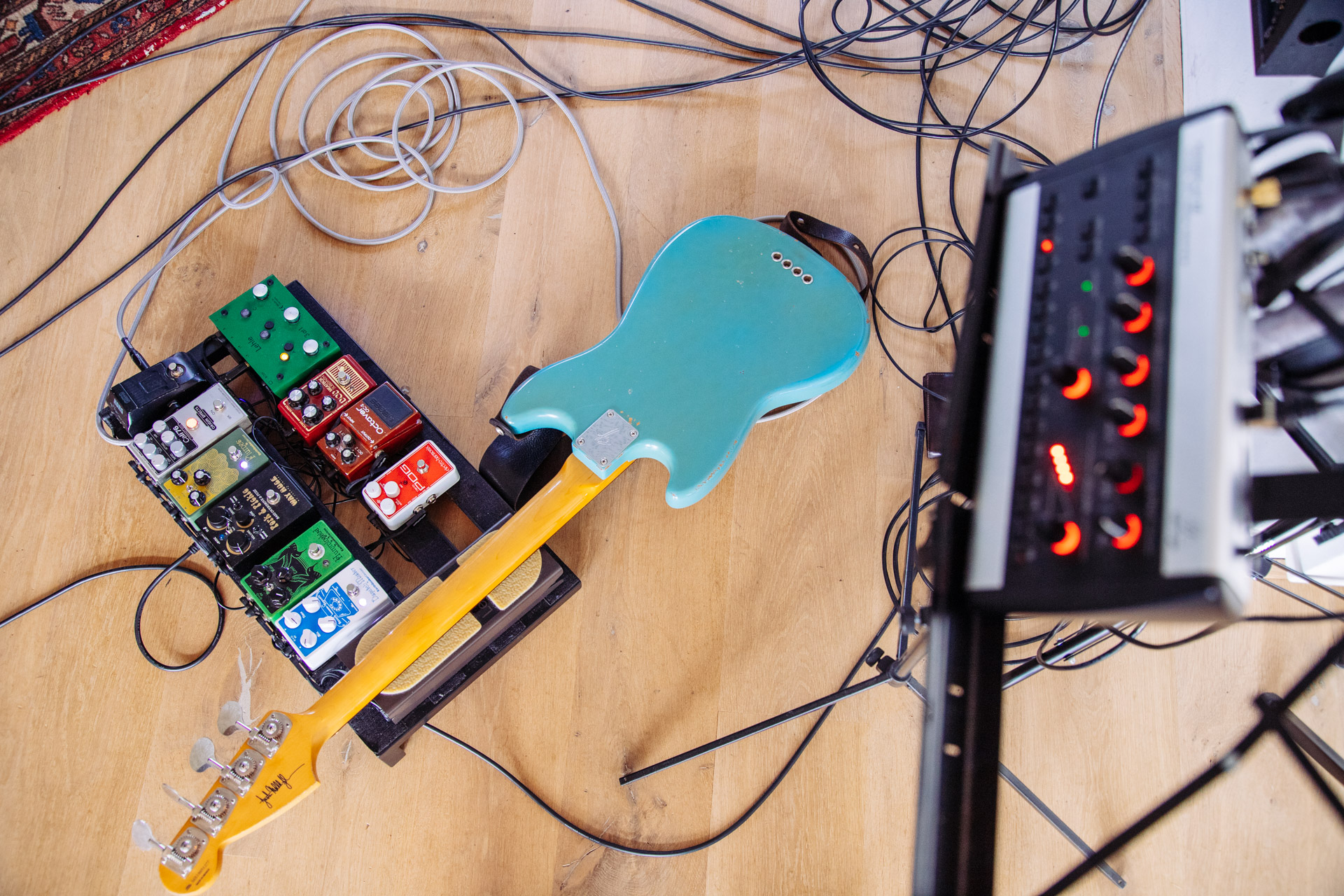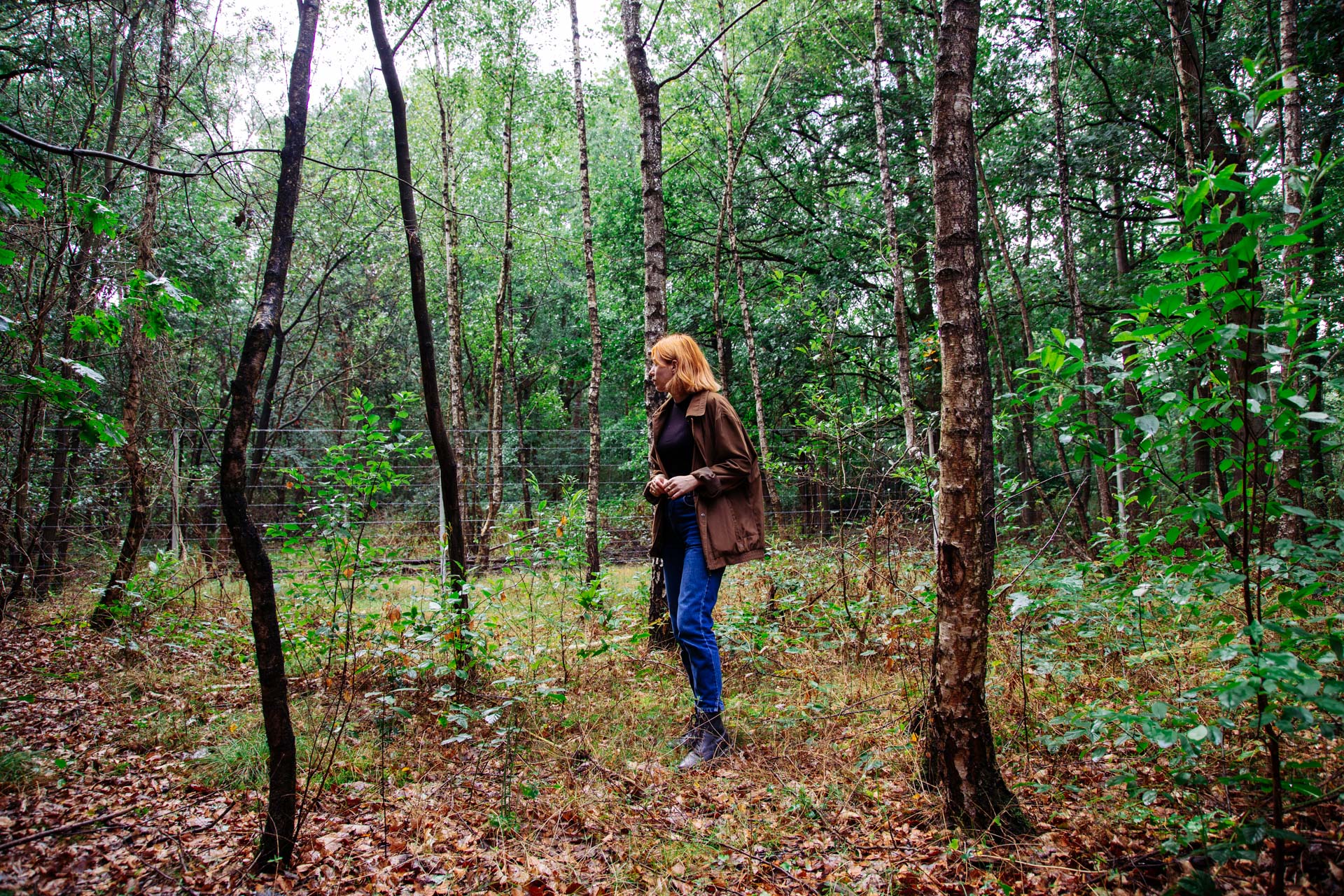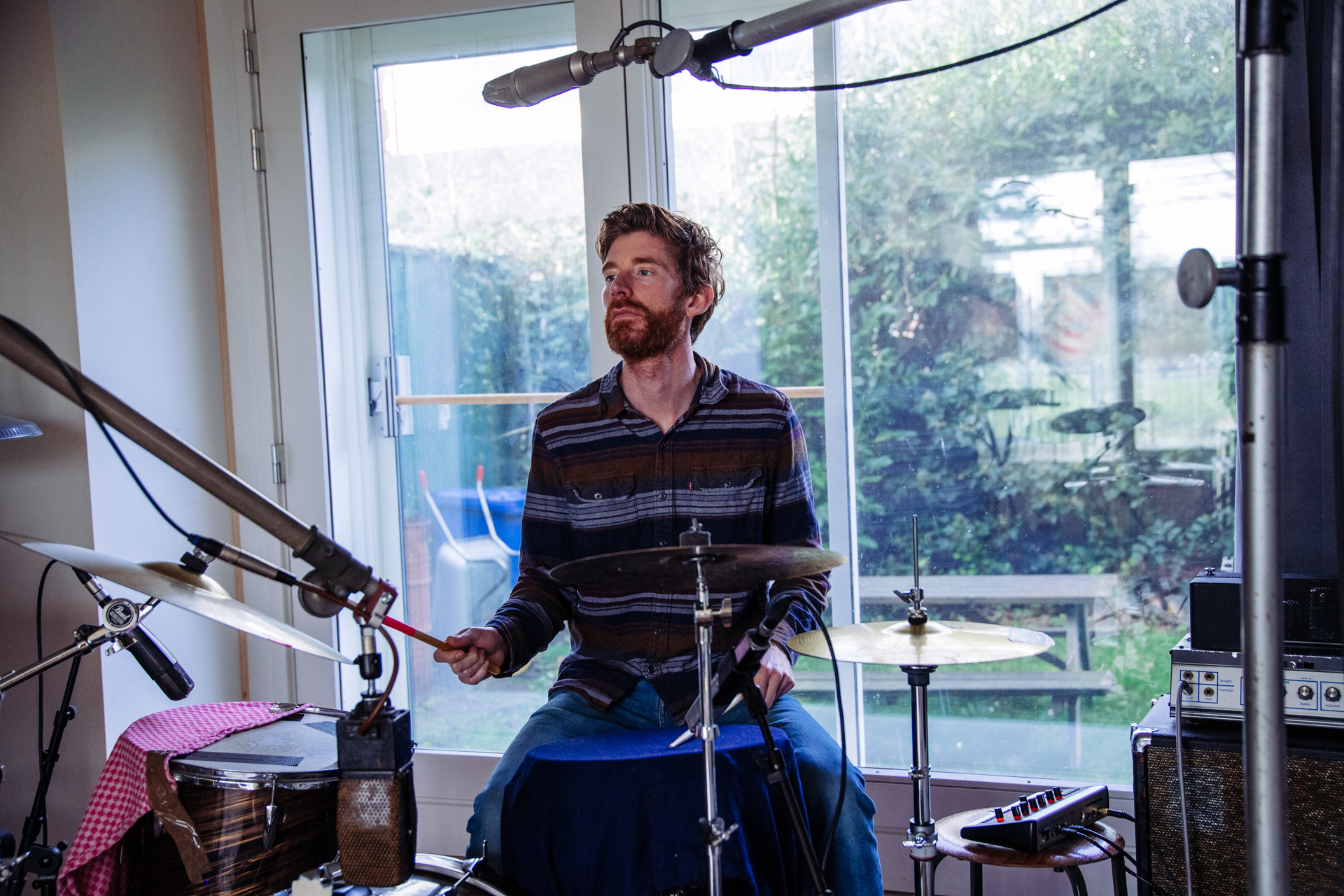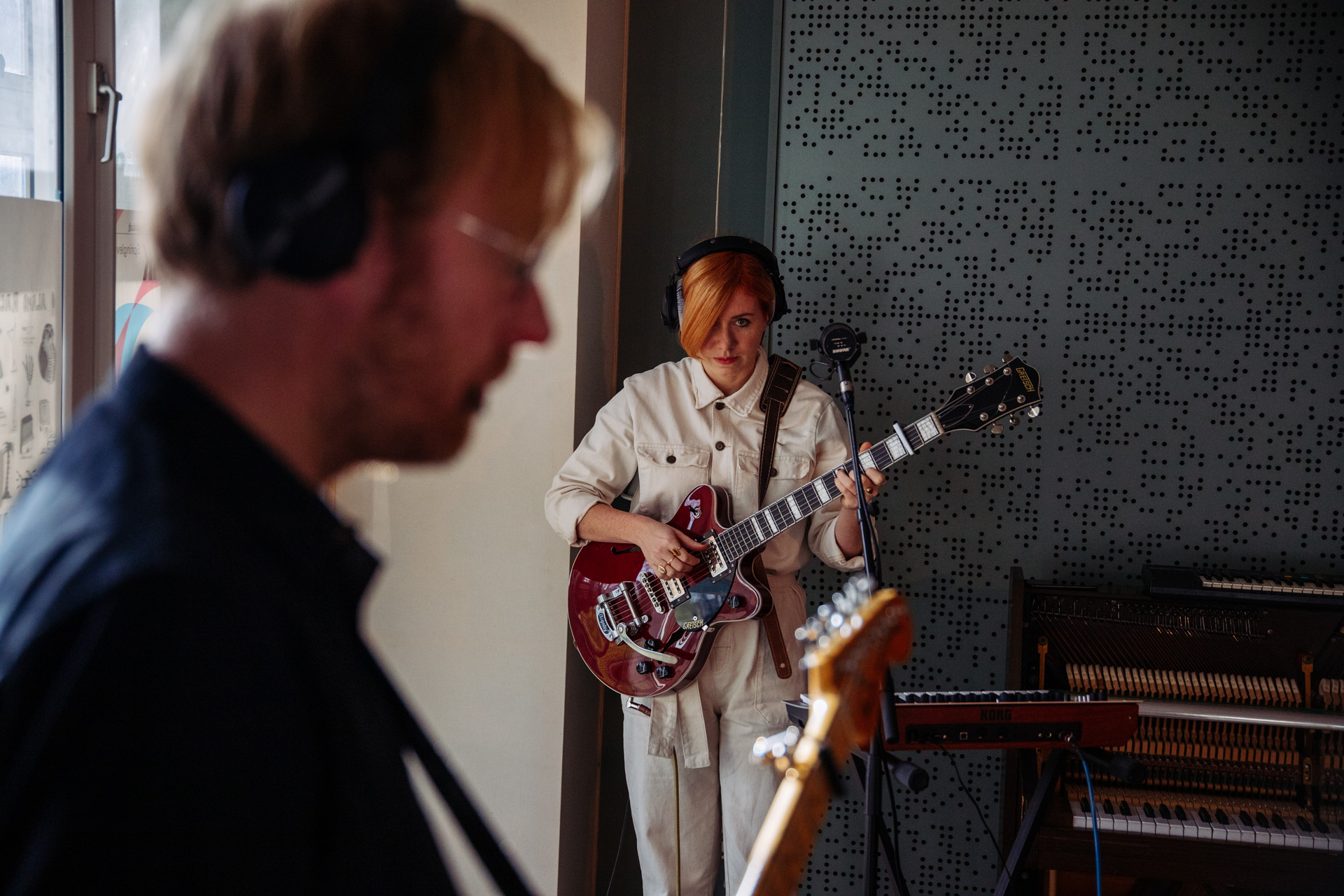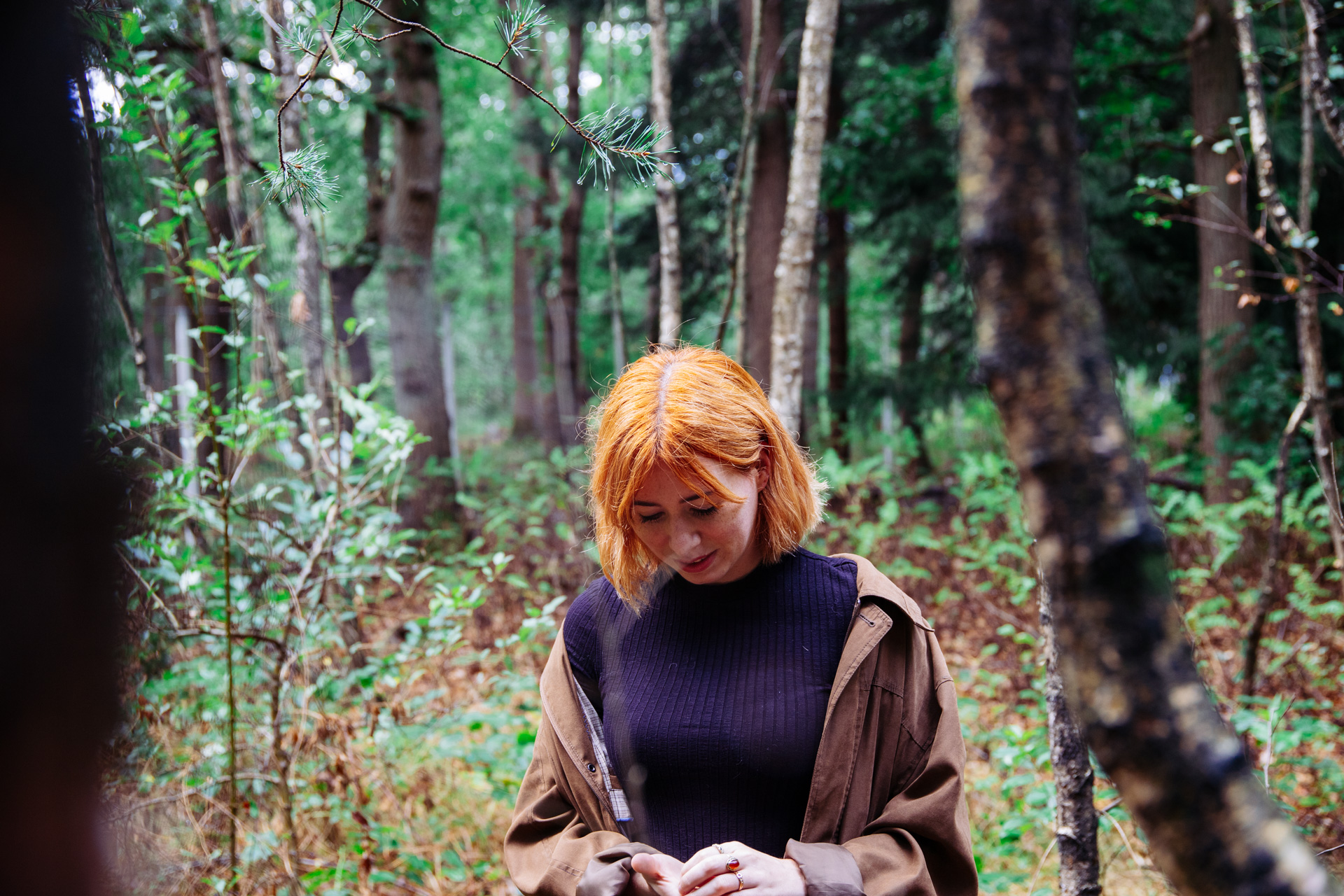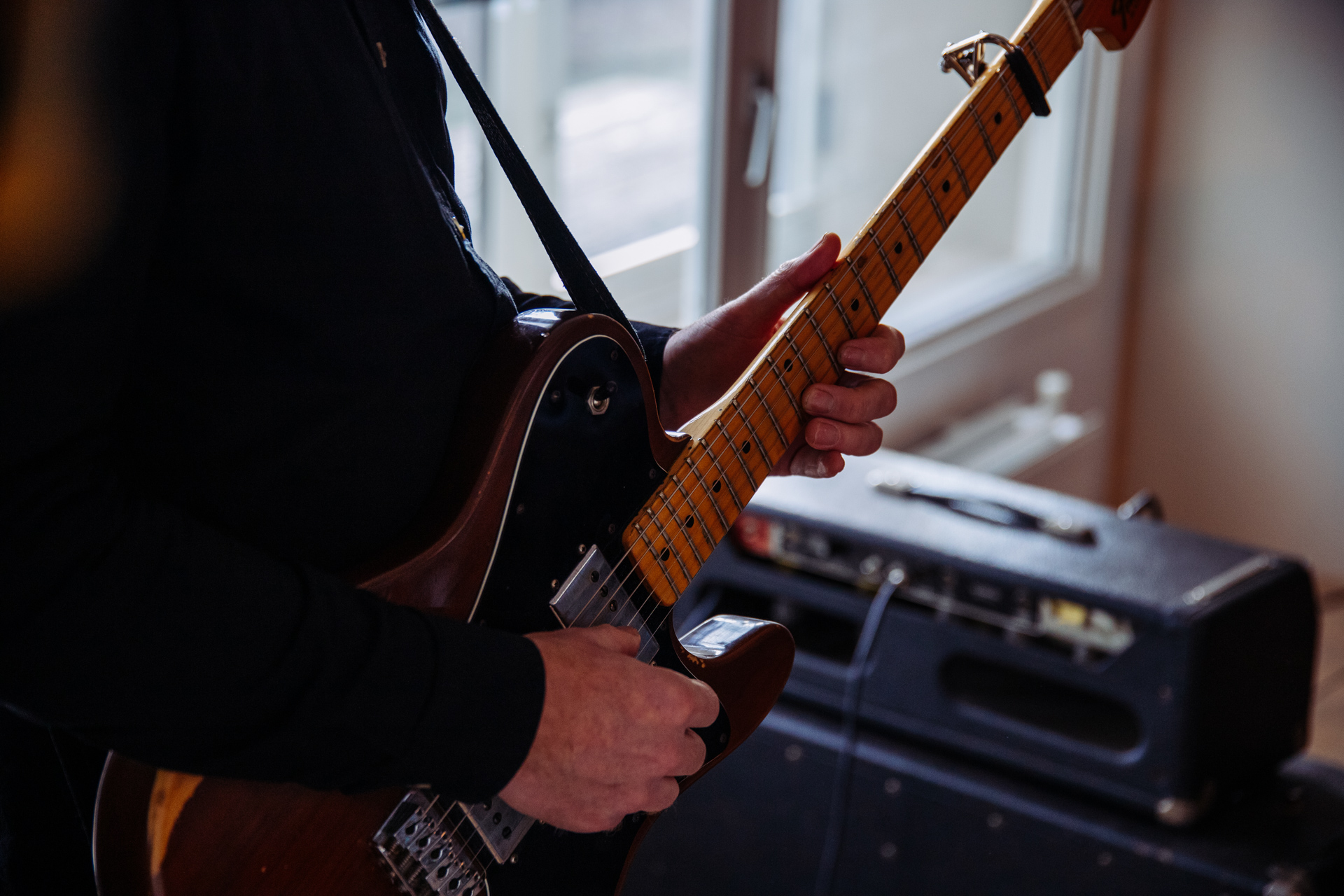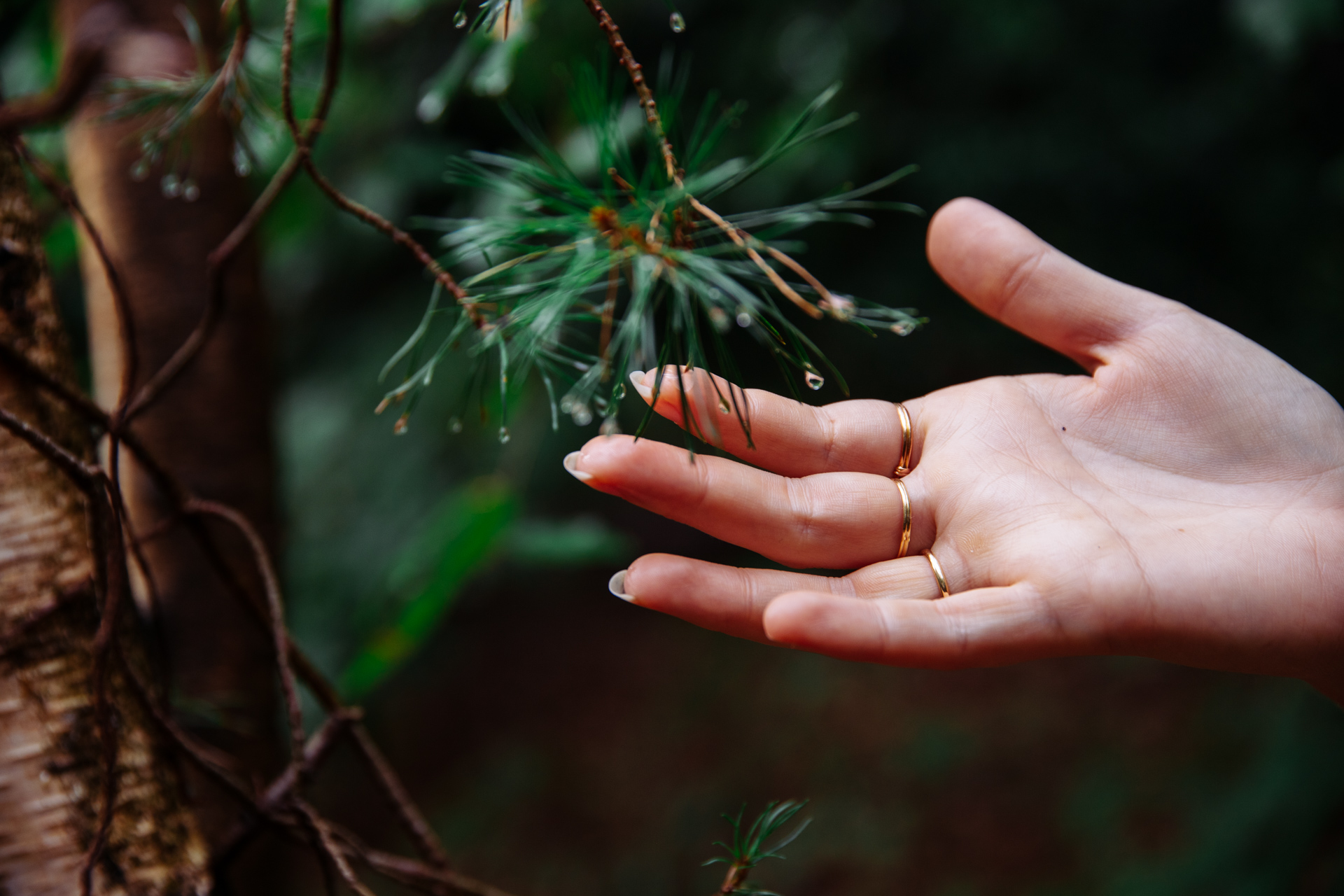If you’re interested in music and based in Utrecht like I am, Robin Kester isn’t a new name. She still only has one ep and a handful of singles out, but she’s been building and building steadily over the past few years. She gathered a new band around her and teamed up with producer Marien Dorleijn (who you might, no, should know from the band Moss) – and played support shows with Alela Diane, Haley Heynderickx and – multiple times – Villagers. Her ‘dreamy folk pop’ became more and more distinguished as she released several singles from her upcoming mini album ‘This Is Not A Democracy’ – out September 11th on AT EASE. If you’re based elsewhere, it won’t be long until your friends will know her, so this right here is your chance to get ahead of them.
This session was one of the last ones I filmed just before the lockdown – and we’ve posted some of the videos individually already, but here’s the full session accompanied by an interview with Robin Kester. Read all about her and watch her play covers of Broadcast and Thom Yorke, plus two songs off her mini album.
No, this isn’t Kester’s debut album yet. “It doesn’t feel like that yet – the music I’m working on right now will be my debut album. ‘This Is Not A Democracy’ is a collection of songs I’ve written over the years, the oldest ‘Portals’ was written in 2015. And the album will be much more cohesive, because I’ve written the new songs in a much shorter time span. Some of them I wrote with Marien. So, the mini album feels like a transition phase – not that I’m any less proud of it, but the album needs to be one cohesive thing for me.”
Taking her time.
The first introduction to Robin Kester was her ep ‘Peel The Skin’, which offers a beautiful but way more introvert and modest version of her work. It’s safe to say her writing has been developing, and a lot of it has to do with performing live and more time to experiment in a studio, she explains. “I wanted to be more active in music, and I’d written some songs, but I suffered a bit of stage fright and anxiety. Dolf Smolenaers of Rosemary and Garlic found me online and booked me on one of the live shows he hosted. Afterwards, he offered to record some of my songs. I had never recorded before, and we recorded those five songs really quickly. But it didn’t feel like I had a lot of control over what happened and I had not put enough thought into it beforehand. Now, that has all changed.”
So, Robin Kester and Marien Dorleijn took their time. “We just started experimenting, looking for sounds. In 2019, I played a lot of shows and figured out what songs I enjoy playing live. That influenced my songwriting, as well as the fact that I formed a really nice band. Basically, a lot of different elements really developed and came together at the same time. And it accelerated my progression into a more raw, layered, band-oriented way of writing.”
It’s a trend you’ll notice with more songwriters who get a chance to record quite soon; their first recordings are often ‘just’ a sort of raw snapshot of their songs. Usually, they later delve into their sound, start to experiment more, or try out different sounds and develop their songs into something more unique. Something that’s more ‘them’. “Now I’m creating music based on what I want to create. I’m more able to express what that is. Before I may have wanted things, but needed others to get it out in the open. I don’t need others to do that anymore, because I now know what I want and what I don’t.”
Robin Kester likes the chemistry.
“Marien is great at… I made a long list of inspirations when we first started collaborating and he noticed that a lot of the things I loved, weren’t present in the things I had done up until then. I’m a late bloomer – and didn’t learn to play guitar until I was 24 – and it took a while to learn ‘the language’. At first you love certain sounds or elements, but don’t really know how to create that yourself. Marien is a kind of translator who’s able to hear something and recreate it – I’ve learned a lot from that in the past two years. The drums in certain Cate Le Bon tracks for instance, that I love. He would know what technique they used on those recordings. And it’s not like we’re copying things, but it’s the ability to know what techniques to use when recording my songs. To create the sound or feeling I want.”
“The connection with Marien works so well, because he’s able to recognize what I have in mind and then produce it. That’s pretty special, but it takes time. He listens a lot, and encourages me to just do things. Whenever I say ‘I don’t know if I can do this…’, he says ‘just do it’. Amazingly, we’re all able to do so many things, also by just improvising. Of course it’s trial and error and there’s plenty we throw out, but it leads us to a joint core. And he always does so much more than what’s asked, just because he wants to. Now, I’m working with people who work as hard on this project as I am, in the band and Adriaan from AT EASE, that’s pretty special. Because in the end it’s my project, Robin Kester, but it certainly feels like a band. I’m really thankful for all of them.
Living in Dublin.
When Robin Kester studied Literature, she lived in Dublin, Ireland for some time. “I had been to Ireland before and always liked it. When I went to study there, I messaged a friend I made during an earlier holiday, and it turned out he was looking for a roommate. So I lived there instead of on campus, found a job and that made me feel like I was a part of the city. Because the people I met at the university were all exchange students too. I thought about staying there, but I was in a relationship with someone in The Netherlands. If not, I probably would have never left Dublin. Who knows, I might go back again someday. I would absolutely love to be able to tour in Ireland.”
That might be a real possibility for Kester, as soon as touring will be able again, because her songs are being played on Irish national radio, she supported Villagers on a tour in The Netherlands and Belgium – after which Conor O’Brien offered to record flugelhorn and trumpet on ‘Cigarette Song’. Kester talks about this – and pretty much everything else – in a very modest but determined voice. It’s clear she’s an artist who knows what she’s after and who’s adamant to get it on her own terms. ‘Of course it’s great that other musicians appreciate my music, like Marien and Conor, and that Guy Garvey plays my songs on his radio show, but I feel other people put a little too much weight on those things. Some people wrote that listeners should like my music because those men do too. No, they should like it because it’s my music and it hopefully speaks to them.’
“Lisa Hannigan is the reason I picked up a guitar.”
“When I moved back from Dublin, I realized I wanted to be more active in music. I didn’t grow up in a musical family at all, and I’ve always enjoyed learning things myself, and my grandma sang in choirs. But my ex-husband is a drummer and I’ve always been a little jealous – and he wasn’t encouraging when I tried something. ‘Music was his thing.’ But I had an intrinsic desire to create music. Lisa Hannigan is the reason I picked up a guitar. I discovered her and absolutely loved her music, so I started learning to play guitar using her songs. At this point, I was 23 or 24 and liked it so much, that I wouldn’t stop playing guitar for hours and days on end. It made me lose all sense of place and time, in a sort of hyper focus. And I was able to develop my guitar skills rather quickly, so that only motivated me more.”
Singing on the other hand, had always been a natural form of expression for Kester, starting at a young age. “I was always singing – when I was scared, I used to sing songs. Now, I started thinking about writing songs myself, but because songwriting was never around in my life except for my ex, it was never an obvious option for me. Once I started writing, I was hooked. At first I joined other bands, singing backing vocals, because stepping out on my own was scary at first. It’s a competition with yourself, just like when you’re scared to go on a rollercoaster but go anyway and get addicted to the adrenaline. The first times I performed by myself, I felt my knees tremble and my hands cramping so I had to stop. Somehow we’re crazy enough to keep at it and go back on.”
“We all need someone we can relate to.”
“Lisa Hannigan is so charismatic, and there’s something in her voice and her lyrics that really spoke to me at that time. My love for her music started with her lyrics. It doesn’t matter how beautiful your melodies are if your lyrics suck. Usually I’m okay if the lyrics at least don’t get in the way of the song. But with her work, I love the songs and the lyrics. They’re small poems. ‘Little Bird’ for instance, the metaphor she uses contains zero clichés, even though it’s a love song. She creates and uses really stunning images, that’s what attracted me at first. It might also have something to do with the fact that she radiates that she’s very approachable, and she seems shy on stage. That was inspiring for me, because I was able to think: if she’s that shy and vulnerable, but still manages to get on the stage, maybe I could too. Everyone need role models. Which is why it is stupid that the male-female divide on radio and television still is so off. As someone who didn’t grow up around music, it was so valuable to me to see an inspiring woman that I could relate to.”
“It’s similar to the way Kate Bush inspired me when I heard her for the first time and tried to sing the high notes in her songs as a little kid. I was – and still am – a fan of Radiohead, but somehow that’s less relatable because it’s a man. Seeing someone from your own gender doing something you like, makes you realize that is something you could actually do yourself too. That’s how it worked for me, anyway.”
“Another thing that annoys me is when people refer to artists like Hannigan purely as a singer. They don’t do that with men who write songs and create music. As if she (or we) don’t have any technical know-how. When a man plays guitar and also records two notes on a piano, they call him a multi-instrumentalist! Ah, well… I think a lot of these things in the music industry have improved, but there’s still a way to go.”
Impending doom
When Robin Kester and I talked, she’d just spent the week in Schenk Studio in Amsterdam (where we filmed this Kim Janssen session!) with her band. “I think all my songs are rather introspective. A lot of songwriters get inspired by the world around them, while my work is more of a psychological self-examination, without it necessarily being autobiographical. My songs are based on a feeling. Because I wrote most songs in a short period of time, I think I’ve been influenced a bit more by things that were happening at the time. My father has been ill and a while ago I myself experienced depression, and I’ve found that now some time has passed, it’s easier for me to write about it. And there’s probably some impending doom of the world lurking in the songs, some pessimism – even though I’m an optimist at heart. Standing in the supermarket and seeing all that food, watching the news on television, it feels like one minute to midnight. Like the world might be gone any minute now. That’s likely to have influenced the feel of my lyrics and songs. You’re bound to get some of that in all my work, but it’s become even darker and more chaotic.”
Photos
Originals
Suspirium (Thom Yorke)
Spotify | Apple Music
Come On Let’s Go (Broadcast)
Spotify | Apple Music
Robin Kester
Credits
Filmed & edited by Matthijs van der Ven.
Audio recorded & mixed by Marien Dorleijn & Sietse Damen.
Location
SSE Noord studio
Amsterdam, The Netherlands
Thanks
SSE Noord
Marien Dorleijn
Sietse Damen
Adriaan Pels
There is no better way to discover music than watching great musicians cover the songs they love. The Influences has been producing these videos ever since 2008.
Read more.
